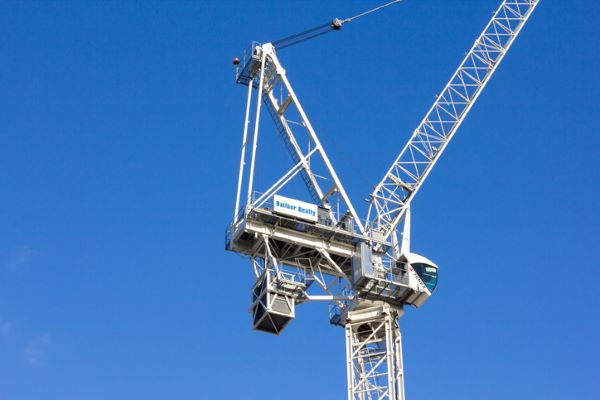ii view: Balfour Beatty rockets on rising orders and share buyback
Exposure to energy transition projects as well as the resilience of support services and growing shareholder returns. Buy, sell, or hold?
13th March 2024 11:42
by Keith Bowman from interactive investor

Full-year results to 31 December
- Revenue up 7% to £9.6 billion
- Profit down 18% to £228 million
- Order book down 5% to £16.5 billion
- Final dividend of 8p per share
- Total 2023 dividend payment up 9.5% to 11.5p per share
- Average net cash held of £700 million, down from £804 million in 2022
- New £100 million share buyback programme
Chief executive Leo Quinn said:
"The Group's reliability and resilience has again delivered a solid performance, with increased revenue and profit from our earnings-based businesses and strong operating cash flow. This success against a challenging economic backdrop is driven by our disciplined contract risk management across a geographically and operationally diversified portfolio.”
- Our Services: SIPP Account | Stocks & Shares ISA | See all Investment Accounts
ii round-up:
Construction and support services company Balfour Beatty (LSE:BBY) today flagged a pick-up in second-half demand, giving it enough confidence to launch a new £100 share buyback programme.
UK energy transition, transport builds and US defence markets are expected to underpin growth, with operational profits expected to further increase during 2024 and accelerate higher in 2025. A full-year 2% increase in operational profit last year to £236 million was offset by lower gains on infrastructure investment disposals, taking overall profit down by almost a fifth to £228 million.
Shares in the FTSE 250 company rose 8% in UK trading having come into this latest news up by around 2% over the last year. That’s similar to paving stone maker Marshalls (LSE:MSLH) and just ahead of a 4% gain for the FTSE 250 index itself over that time.
Balfour Beatty construction works on projects like the Hinkley Point nuclear plant and HS2 railway, along with various support service road maintenance contracts.
UK construction related revenues in 2023 rose 10% to £3 billion. US construction sales were flat at £3.7 billion, with revenue at its Hong Kong Gammon business, helped by works for a new airport, up 27% to £1.35 billion.
Support service related revenues improved 2% over the year to £1 billion. The year-end estimate for the value of its infrastructure investments came in at £1.2 billion, down from £1.3 billion in 2022.
A final dividend of 8p per share takes the total payment for 2023 up 9.5% to 11.5p per share. A trading update alongside its AGM is scheduled for 9 May.
ii view:
Started in 1909, Balfour today operates mainly in the infrastructure and non-residential construction segments as well as investing in infrastructure projects such as US military housing. Construction generates most of its revenue at just over four-fifths, with support services another tenth and investments the balance of around 5%. Geographically, sales are split relatively evenly between the UK and the US at just over two-fifths each, with the balance generated largely in Hong Kong.
For investors, elevated borrowing costs and ongoing uncertainty for the timing of expected interest rate cuts both in the UK and US should not be forgotten. Pending political elections in the UK and US also raise uncertainty regarding future spending. Costs generally for businesses remain elevated, while those construction projects taken on at a fixed cost always offer a degree of cost overrun risk.
- Sign up to our free newsletter for investment ideas, latest news and award-winning analysis
- Shares for the future: a steadily growing, well-oiled machine
- Nvidia and Scottish Mortgage made me an ISA millionaire, but now I back these funds too
On the upside, diversity of both operations and geographical regions exists and previous management initiatives have sought to lower risks including reducing fixed price contracts where possible. A robust order book offers good visibility, while a focus on shareholder returns remains, with the shares offering a forecast dividend yield of around 3%.
In all, and while the impact of investment performance on profits should not be ignored, this is a well run business moving in the right direction, and a consensus analyst fair value estimate in excess of 425p appears to offer grounds for optimism.
Positives:
- A focus on lower risk contracts
- Increasing shareholder returns
Negatives:
- Elevated costs
- Uncertain economic outlook
The average rating of stock market analysts:
Buy
These articles are provided for information purposes only. Occasionally, an opinion about whether to buy or sell a specific investment may be provided by third parties. The content is not intended to be a personal recommendation to buy or sell any financial instrument or product, or to adopt any investment strategy as it is not provided based on an assessment of your investing knowledge and experience, your financial situation or your investment objectives. The value of your investments, and the income derived from them, may go down as well as up. You may not get back all the money that you invest. The investments referred to in this article may not be suitable for all investors, and if in doubt, an investor should seek advice from a qualified investment adviser.
Full performance can be found on the company or index summary page on the interactive investor website. Simply click on the company's or index name highlighted in the article.